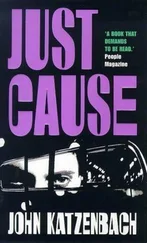Ricky reluctantly opened the door. “Where do I sign?”
The deliveryman offered him the clipboard and pointed at the twenty-second line down. “Right there,” he said. Ricky signed. The deliveryman checked the signature, then ran an electronic tabulator across a bar code. The machine beeped twice. Ricky had no idea what that was about. Then the deliveryman handed him the small cardboard one-day express envelope. “Have a nice day,” he said, with a tone that implied that he didn’t really care one way or the other what sort of day Ricky had, but that he’d been taught to say it, and he was following designated procedure in any case.
Ricky paused in the doorway, staring down at the label on the envelope. The return address was from the New York Psychoanalytic Society, an organization that he was a longtime member of, but had had precious little to do with over the years. The society was something of a governing body for New York’s psychoanalysts, but Ricky had always shunned the politicking and connecting that accompanied any such organization. He went to an occasional society-sponsored lecture, and he flipped through the society’s semiannual journal to keep up with his peers and their opinions, but he avoided participating in the panel discussions the society held just as much as he avoided the holiday cocktail parties.
He stepped back into his waiting room, locking the doors behind him, wondering why the society had written to him at this point. He suspected that close to a hundred percent of the society was taking off on August vacations anyway. Like so many aspects of the process, in the psychoanalytic world, the summer month was sacred.
Ricky found the tab and pulled open the cardboard envelope. Inside there was a regular letter-sized envelope bearing the society’s embossed return address in the corner. His name was typed on the envelope, and along the bottom there was a single line: by overnight courier-urgent.
He opened the envelope and withdrew two sheets of paper. The first bore the masthead of the society. He saw immediately that the letter was from the organization’s president, a physician some ten years older than he, and whom he knew only vaguely. He could not recall ever conversing with the man, other than perhaps a handshake and forgettable pleasantry.
He read swiftly:
Dear Dr. Starks:
It is my unfortunate duty to inform you that the Psychoanalytic Society is in receipt of a significant complaint concerning your relationship with a former patient. I have enclosed a copy of the complaining letter. As per the society’s bylaws, and after discussing the issue with the leadership of this organization, I have turned the entire matter over to the state’s board of medical ethics investigators. You should be hearing from personnel in that office in the very near future. I would urge you to obtain competent legal counsel at your earliest convenience. I am optimistic that we will be able to keep the nature of this complaint out of the news media, as allegations such as these throw our entire profession into disrepute.
Ricky barely glanced at the signature, as he turned to the second sheet of paper. This, too, was a letter, but addressed to the society’s president, with copies to the vice president, ethics committee chairman, each doctor on the six-person ethics committee, the society’s secretary, and treasurer. In fact, Ricky realized, any physician whose name was attached in any way to the society’s leadership had received a copy. It read:
Dear Sir or Madam:
More than six years ago, I entered into a course of psychoanalytic treatment with Dr. Frederick Starks, a member of your organization. Some three months into a four-times-weekly series of sessions, he began to ask me what might be considered inappropriate questions. These were always about my sexual relations with the various partners I had leading up to and including a failed marriage. I assumed that these inquiries were a part of the analytic process. However, as the sessions continued, he kept demanding more and more explicit details of my sex life. The tone of these questions became increasingly pornographic. Every time I tried to change the subject matter, he invariably forced it back, always increasing the quality and quantity of description. I complained, but he countered that the root of my depression resided in my failure to fully give myself in sexual encounters. It was shortly after that suggestion that he raped me for the first time. He told me that unless I submitted, I would never feel better about myself. Having sex during therapy sessions became a requirement for continued treatment. He was insatiable. After six months, he told me that my treatment was at an end, and that there was nothing he could do for me. He said I was so repressed that a course of drugs and hospitalization was probably required. He urged me to check into a private psychiatric hospital in Vermont, but was unwilling to even make a call to that hospital’s director. He forced me to have anal sex with him the day he ended our sessions. It has taken me several years to recover from my relationship with Dr. Starks. During this time, I have been hospitalized three times, each time for more than six months. I bear the scars of two failed suicide attempts. It is only with the constant help of a caring therapist that I have begun the process of healing. This letter to your organization is a part of that process. For the time being, I feel I must remain anonymous, although Dr. Starks will know who I am. If you decide to pursue this matter, please direct your investigation to my attorney and/or my therapist.
The letter was unsigned, but contained the name of a lawyer with a midtown address, and a psychiatrist with a suburban Boston listing.
Ricky’s hands shook. He was dizzy, and slumped against a wall of his apartment to steady himself. He felt like a prizefighter who has absorbed a pummeling-disoriented, in pain, ready to drop to the canvas when the bell leaves him utterly defeated, but still standing.
There was not a single word of truth in the letter. At least not one that he could discern.
He wondered whether that would make even the slightest bit of a difference.
He looked down at the lies on the page in front of him and felt a great contradiction within him. His spirits plummeted, his heart was cold with despair of his own, as if some tenacity had been sucked out of him, and at the same moment, replaced with a rage that was so far distant from his normal character that it was almost unrecognizable. His hands started to quiver, his face flushed red, and a thin line of sweat broke out on his forehead. He could feel the same heat growing at the back of his neck, in his armpits, and down his throat. He turned away from the letters, raising his eyes, looking around for something he could seize hold of and break, but he could find nothing readily available, which angered him even more.
Ricky paced back and forth across his office for a few moments. It was as if his entire body had acquired a nervous twitch. Finally, he flung himself down into his old leather chair, behind the head of the couch, and let the familiar creakings of the upholstery and the sensation of the polished fabric beneath his palms calm him, if only a little.
He had absolutely no doubt who had concocted the complaint against him. The false anonymity of the phony victim guaranteed that. The more important question, he recognized, was determining why. There was an agenda, he understood, and he needed to isolate and identify what it was.
Читать дальше












